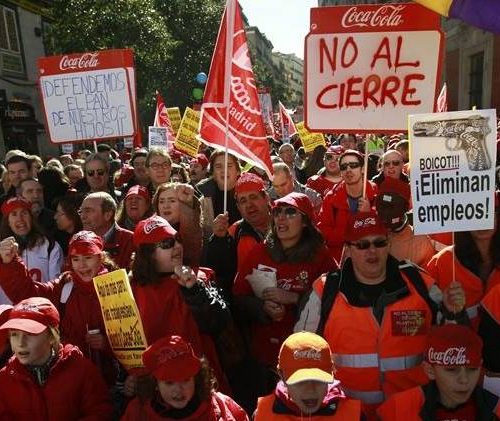THE SPANISH MASSES VOTED FOR A GOVERNMENT OF THE LEFT: The General Elections of the 28 April occurred in a context of polarisation and tension against the neo-liberal policies imposed by the European Union.
The experience of the Tripartite right-wing organisation that had started in Andalusia galvanised the population in its refusal to have such a thing repeated at State level.

2019














